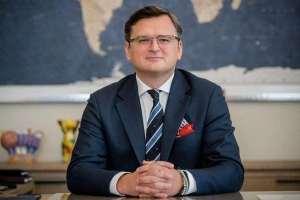When a journalist from BURSA goes to Mediaş, it either means that "Romgaz" is going public, or "Transgaz", is being privatized, or something else related to natural gas is happening.
But what actually happened between September 5th and September 11th, in Mediaş, was the "Mediaş Central European Film Festival 7+1" (MCEFF), which, being a film festival, only had one thing to do with natural gas: it was financed by "Romgaz".
On the initiative of Radu Gabrea, with the help of Tudor Neamţu, the mayor of Mediaş and with the help of the Association for Intracommunity Development "Regiunea Târnavelor", the Festival presented the winners of the national film awards of Czech Republic, Slovakia, Austria, Hungary, Romania, Poland and Slovenia, with Israel also being invited, on this first edition. The schedule also included movies that received international or domestic praise, proposed by the Cultural Institutes of the participating countries.
The Jury awarded the following prizes:
- The best picture award: Andras Nagy, "The Pascal Library";
- Best director award: Florian Şerban, "When I want to whistle, I whistle";
- The jury"s award: Gey Oni, "Courage valley";
- The best acting award: Ursula Strauss, "Maybe in another life";
- The great prize: "Little Rose" - directed by Jan Kidawa-Blonski;
- The award of the public: "Mahler and Freud", directed by Percy and Felix Adlo.
Aside the interest in the event itself, there is also the concept behind it - "The third Europe" - a controversial concept, which some even view as being politically dangerous, as it is considered as having the potential to unravel Romania at its Carpathian seams.
• ROMANIA MERGING THE TRAITS OF TWO EMPIRES
At the time of its launch, the idea of "The third Europe" idea had two opposing versions.
In 1990, Dan Zamfirescu, one of the patriarchs of the protochronicism of the 70s, was writing, along the lines of the experts studying Thracians who thought that the Bucegi mountains were the cradle of human civilization:
"Martin Heidegger reportedly said that [...] the spiritual regeneration of Europe will begin from the perimeter of Romanian culture and more generally from the South-Eastern European region, this so-called "Third Europe" which, compared to Western Countries (and to the cultures of Central and Eastern Europe that are subordinated to it), or to 19th and 20th century Russia, hasn"t played a significant part in shaping the fate of universal culture, since the Byzantine Empire".
What Zamfirescu considered the "The third Europe" was the areas influenced by Greece and the Byzantine Empire, stretching far towards the South East.
The other version of the intercultural "The Third Europe", program, initiated in Timişoara by Cornel Ungureanu, Mircea Mihăieş, Adriana Babeţi and others, builds on the foundation of the German notion of "Mitteleuropa" (Central and Eastern Europe), redefines the Transylvanian cultural identity, as a heir to the traditions of the Austro-Hungarian Empire, in an area where the holocaust ended the Yiddish culture which had developed there.
This latest alternative of the concept has shaped the list of guests to the Festival, around the idea that the countries of "The third Europe" have a distinct cultural contribution, a voice which, despite their undeniable diversity, is united by their proximity and mutual influence, over the course of history which they sometimes shared. (It is worth mentioning that, coincidentally, "Mediaş" - < i >Medgyes< /i > in Hungarian - , is a combination between the Hungarian word < i >megyés< /i >, and Serbian-Croatian word < i >medja¹< /i >, leading to the Romanian word < i >megieş< /i > - which was used in the Middle Ages in the Romanian regions of Moldavia and the Romanian Country -, which means "free peasant", as well as "neighbor", and thus, a better location for the Festival intended to promote "proximity" couldn"t have been chosen).
Honestly, I would be truly happy if Romanians had actually learned to write from the Dacians, and the Edelweiss protected us from the < i >bubuls< /i >, but I think that is just fiction.
However, I think that we truly synthesize the influences of two major empires, and the cultural proximity to our neighbors also helps improve our economic potential, especially now, when the "Eurozone", (what I would call "the first Europe"), is imploding under the weight of the Union.
• RADU GABREA: 7,500 VIEWERS - A SUCCESS!
Movie director Radu Gabrea, the initiator of the MCEFF, kept the fact that his movie, "Red gloves" won the award for the best screenplay at the Festival of Bari, in Italy, a secret until the last day. Which gave him a second reason to be happy, aside from the success of his own festival, as proven by the number of 7,500 people who attended the public screenings of Mediaş - a town which counts approximately 50,000 inhabitants.
"We want to make this Festival a permanent event", Gabrea said to BURSA. He went on to say that he felt guilty for not inviting Lithuania, as Lithuanian filmmakers told him that they felt "forgotten": "I want to invite you to participate in the second edition in September 2012", the director said, probably thinking of the Lithuanians as well.
Well, by then, there are real odds that "the First Europe" would crumble and only Gabrea"s Europe would be left.
















































